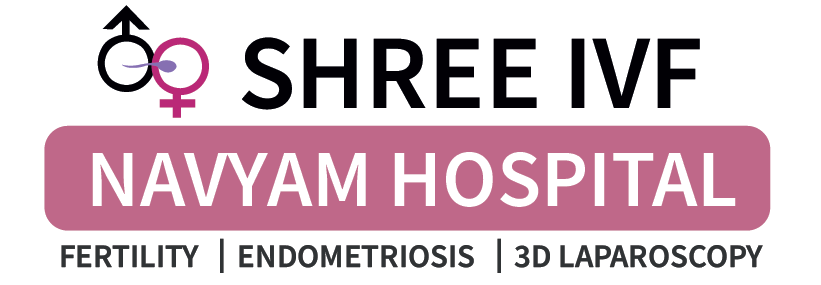
Preimplantation Genetic Screening?
Preimplantation Genetic Screening is a test that carefully examines the chromosomal material of an IVF or in-vitro fertilized egg before the process of implantation can begin. During this time, one or more cells are removed from the embryo to test it for numerical chromosomal abnormalities, also known as aneuploidy.
In this method, the screening allows for selective implantation of embryos once the healthcare professionals are aware of which ones have a standard number of chromosomes.
🧬 Everything You Need to Know About Genetic Screening
Genetic screening is a medical test that examines an individual’s DNA, genes, and chromosomes to identify changes or mutations associated with inherited disorders, genetic conditions, or predispositions to diseases. It is commonly used in fertility treatments, pregnancy care, and preventive healthcare to detect genetic risks early and make informed decisions regarding health and family planning.
✅ What is Genetic Screening?
Genetic screening is a diagnostic tool that evaluates a person’s genetic makeup for potential hereditary conditions or genetic abnormalities. It helps identify:
- Gene mutations linked to inherited diseases.
- Chromosomal abnormalities affecting fertility or fetal health.
- Genetic risks for future health conditions.
- Carrier status for genetic disorders.
- Embryo health during fertility treatments (e.g., IVF).
🔍 Types of Genetic Screening
Genetic screening is categorized into various types based on the purpose and target group:
- Carrier Screening:
- Determines whether a person carries a recessive gene mutation that could be passed on to their child.
- Recommended for couples planning a pregnancy.
- Common for diseases like cystic fibrosis, thalassemia, and sickle cell anemia.
- Prenatal Screening:
- Performed during pregnancy to detect genetic conditions in the fetus.
- Includes non-invasive prenatal testing (NIPT), maternal blood tests, and ultrasound.
- Screens for conditions like Down syndrome, trisomy 18, and trisomy 13.
- Newborn Screening:
- Conducted shortly after birth to identify genetic, metabolic, or developmental disorders.
- Helps in early diagnosis and treatment of conditions such as PKU, sickle cell disease, and congenital hypothyroidism.
- Preimplantation Genetic Testing (PGT):
- Performed on embryos during IVF before implantation.
- Detects chromosomal abnormalities or inherited genetic disorders.
- Improves the chances of a healthy pregnancy by selecting embryos without genetic issues.
- Predictive or Presymptomatic Screening:
- Used for individuals with a family history of genetic disorders.
- Identifies the risk of developing diseases like cancer, Alzheimer’s, or Huntington’s disease later in life.
- Pharmacogenomic Screening:
- Analyzes how a person’s genes influence their response to medications.
- Helps in personalizing drug prescriptions for better effectiveness.
🩺 Who Should Consider Genetic Screening?
Genetic screening is recommended for:
- Couples planning a pregnancy: To assess the risk of passing on inherited conditions.
- Pregnant women: For early detection of fetal genetic abnormalities.
- Individuals with a family history of genetic disorders or inherited diseases.
- Couples undergoing IVF: To screen embryos for genetic issues before implantation.
- Patients with unexplained infertility or multiple miscarriages: To detect underlying genetic causes.
- Individuals seeking personalized medicine: To optimize drug effectiveness based on their genetic profile.
🧬 Genetic Screening Process
The genetic screening process involves the following steps:
- Genetic Counseling:
- A genetic counselor explains the process, potential outcomes, and implications of the test.
- Provides support and guidance regarding test results and family planning decisions.
- Sample Collection:
- A sample of blood, saliva, or tissue is collected.
- For prenatal screening, maternal blood or amniotic fluid is used.
- For IVF embryos, a few cells are biopsied from the embryo.
- Laboratory Analysis:
- The sample is analyzed to detect genetic mutations, chromosomal abnormalities, or hereditary risks.
- Techniques like next-generation sequencing (NGS) or polymerase chain reaction (PCR) are used.
- Result Interpretation:
- The genetic counselor or doctor reviews the results with the patient.
- Based on the findings, further steps like treatment planning or reproductive decisions are recommended.
🌟 Benefits of Genetic Screening
Genetic screening offers several advantages:
- Early Detection of Genetic Disorders:
- Identifies genetic risks early for timely medical intervention.
- Helps prevent the transmission of hereditary diseases.
- Informed Family Planning:
- Provides couples with insights into genetic compatibility.
- Reduces the risk of passing on genetic conditions to children.
- Improved IVF Success Rates:
- Preimplantation genetic testing (PGT) enhances the chances of a healthy pregnancy.
- Reduces the risk of miscarriages and genetic abnormalities.
- Personalized Medicine:
- Pharmacogenomic screening helps personalize treatments based on genetic makeup.
- Improves medication effectiveness and reduces side effects.
- Prevention of Inherited Diseases:
- Detects carriers of genetic disorders to avoid disease transmission.
- Facilitates early intervention and preventive measures.
🚫 Risks and Limitations of Genetic Screening
While genetic screening is beneficial, it has certain risks and limitations:
- False Positives or Negatives:
- Results may occasionally be inaccurate or inconclusive.
- Requires confirmatory diagnostic testing.
- Emotional Impact:
- Positive results may cause emotional distress or anxiety.
- Counseling is essential to provide support.
- Ethical Concerns:
- Raises ethical questions about genetic discrimination and privacy.
- Genetic data security is a concern.
- Limited Scope:
- Cannot detect all genetic conditions.
- May not predict the severity of certain disorders.
🔥 Genetic Screening and IVF
Genetic screening plays a significant role in IVF treatments, including:
- Preimplantation Genetic Testing for Aneuploidy (PGT-A): Detects chromosomal abnormalities.
- PGT for Monogenic Disorders (PGT-M): Screens for single-gene mutations.
- PGT for Structural Rearrangements (PGT-SR): Identifies chromosomal rearrangements.
- Improves IVF Success: Increases the chances of a healthy pregnancy.
- Reduces the Risk of Genetic Conditions: Selects embryos without genetic abnormalities.
🌸 Key Takeaway
Genetic screening is a powerful tool in modern medicine, offering individuals and couples valuable insights into their genetic health and reproductive risks. It plays a critical role in fertility treatments, prenatal care, and preventive healthcare by detecting genetic abnormalities early. Though not without limitations, genetic screening empowers individuals with knowledge and options for making informed health and family planning decisions. 💖


